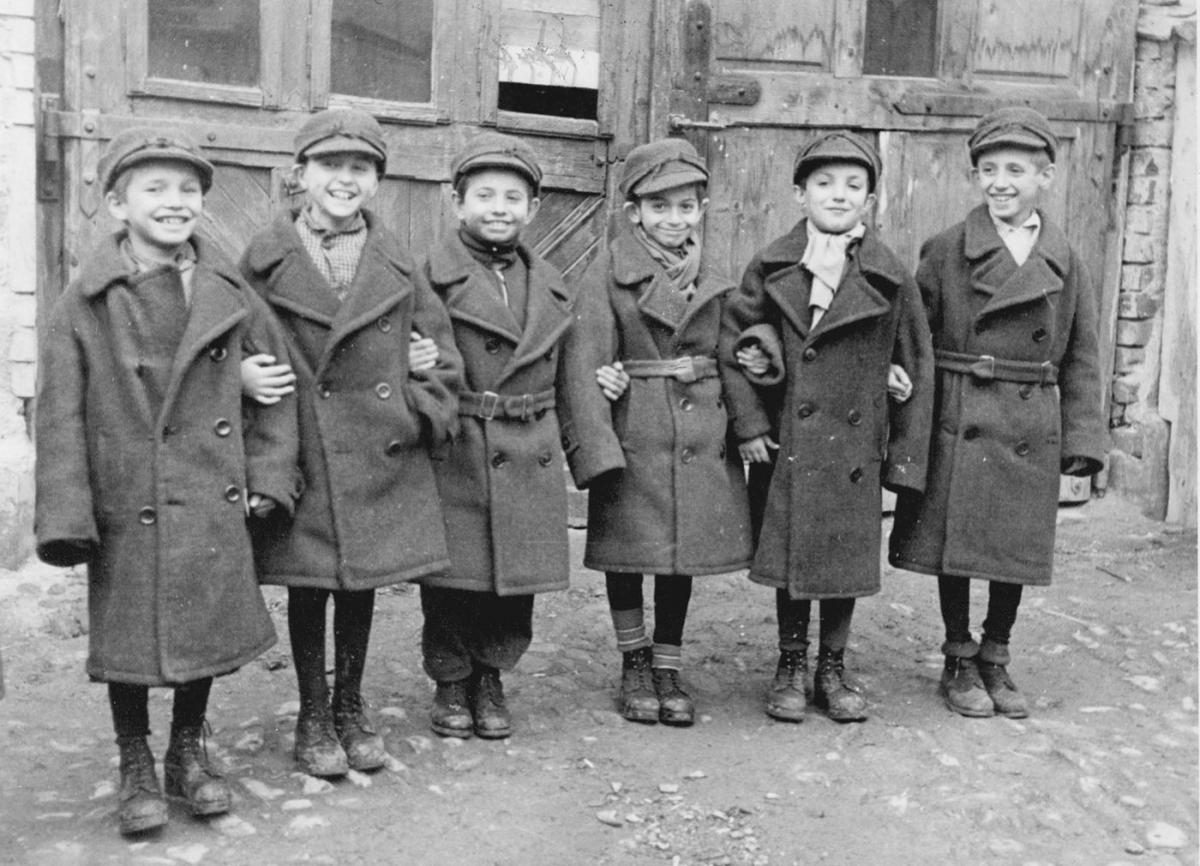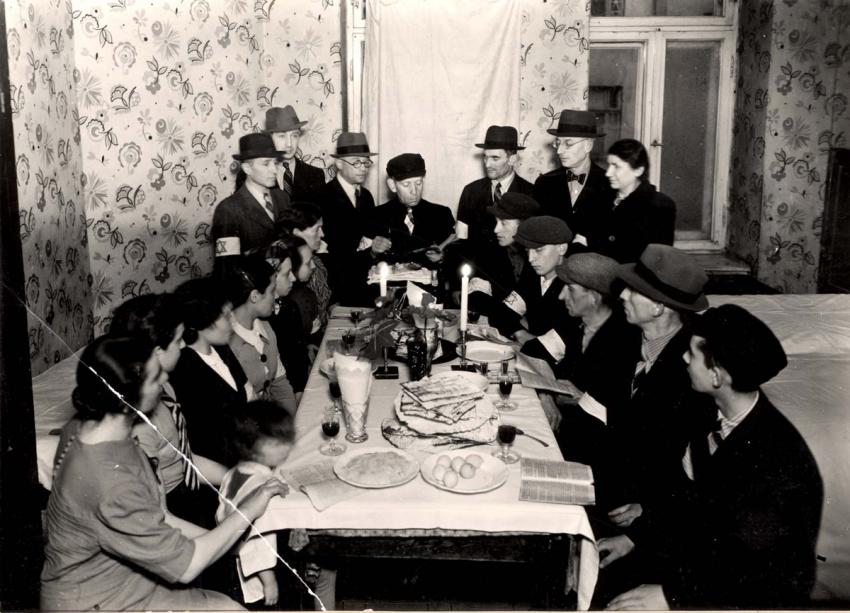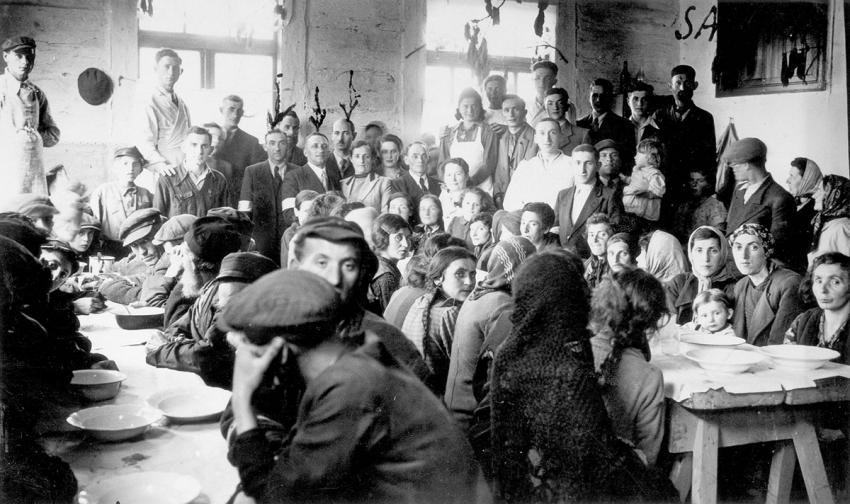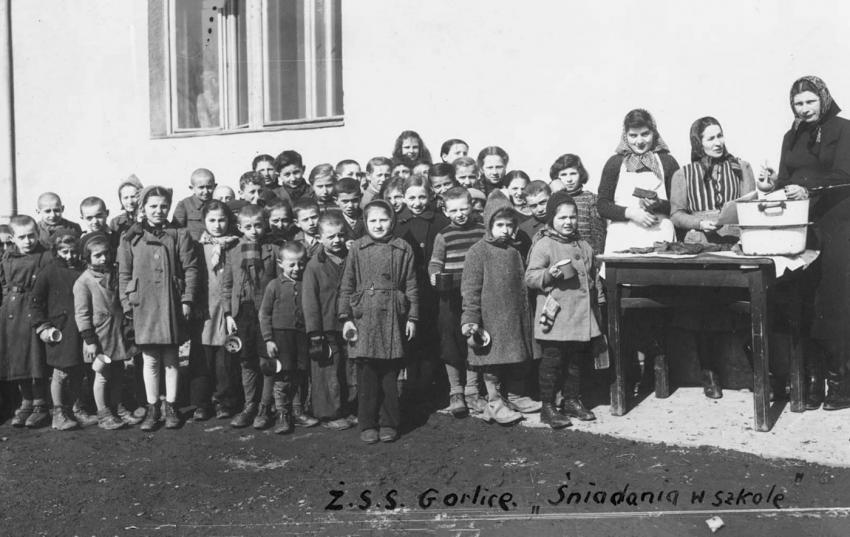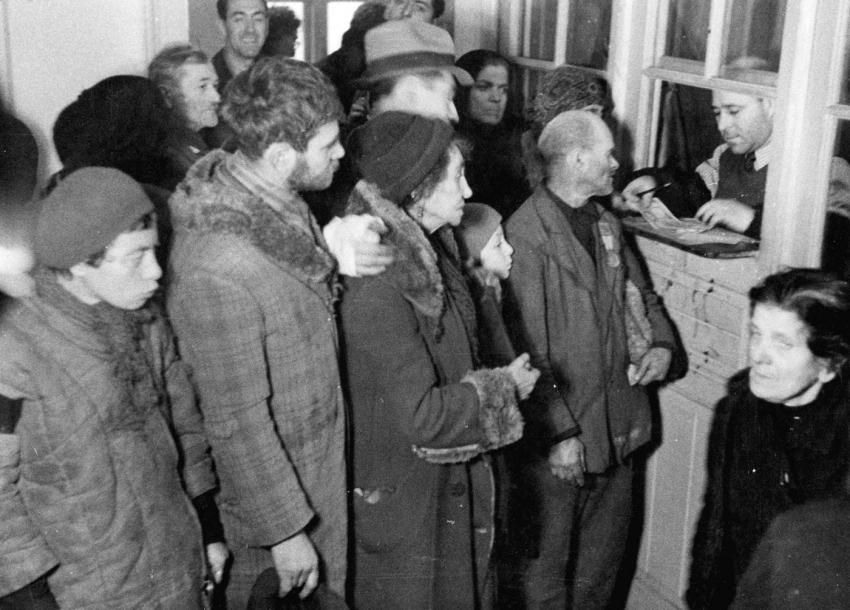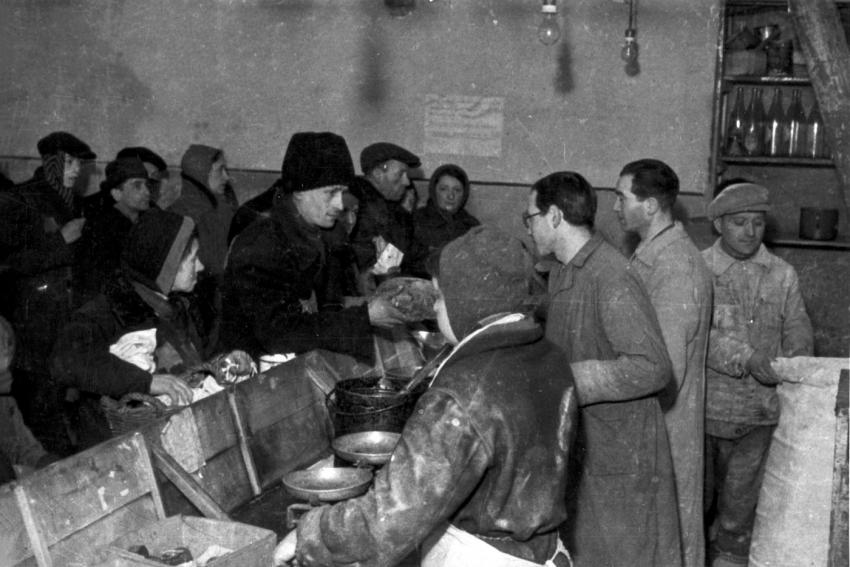In Poland, the Joint Distribution Committee (JDC), a US Jewish aid organization, assisted thousands of Jews who had been deported from Germany. In German-occupied Warsaw, the Jewish community and the JDC set up soup kitchens, distributed food and clothes to the needy, and established childcare institutions.
In France, members of the OSE, a Jewish humanitarian organization for children, entered concentration camps in order to extract children before they were deported to the extermination camps. In the Netherlands, Hennie and Yehoshua Birnbaum took care of orphaned children in the Westerbork camp, and later in Bergen-Belsen. In Romania, Jewish organizations and leaders, led by Wilhelm Filderman, worked to assist Jews who had been deported to Transnistria. They sent aid there, and even succeeded in securing the release of Jews in return for payment. Members of the "Relief and Rescue Committee" in Hungary and many Jewish organizations throughout Europe risked their lives to try and save their fellow Jews.
Activity of the Joint Distribution Committee In Occupied Poland
"When the war broke out the Joint did not have large sums of money available, scarcely sufficient for a few months. It was very difficult to maintain contact with the headquarters [of the Joint], which moved from place to place, and, as a result, the transfer of funds from abroad was inadequate for so difficult a period. Later, when war broke out between America and Germany, in 1941, there were no more direct transfers of funds....
As the social-welfare organization required huge sums of money, the Management of the Joint, consisting of Messrs. Guzik, Giterman and Neustadt, set about obtaining very large loans for the Joint from private persons. These transactions, which continued right through the period of the war, were forbidden from the beginning. This illegal transfer could have cost the heads of the Management of the Joint, particularly as the matter became an open secret about which all Warsaw talked. Guzik was imprisoned for nine months in connection with illegal transfer...."
Ringelblum, II, pp. 133-134.
Jewish Self-Help In Warsaw
"It is in difficult times that the noble side of people sometimes reveals itself. It has never before been possible to witness so many examples of devotion and self-sacrifice as at this hour. Countless individuals hurry to answer every call for help from the Jewish Community or the Jewish Self-Help, and sometimes, on their own initiative, they give aid where the need arises.
...A Social Welfare department was set up under the Zss with sections for: Finance, Clothes Collection, Emergency Aid, Sanitation and Housing for the Homeless. In addition, Local Committees have been set up in the various sections of the city. In this way a fairly complicated and widespread system of public assistance has penetrated through every level and part of the Jewish public, and reaches into the most distant areas populated by Jews....
A separate chapter worth noting in the work of the House Committees is child care. Owing to the fact that the schools are not operating, many children of school and kindergarten age have remained without care and supervision, particularly where their parents are sometimes obliged to leave their homes in order to make a living. The House Committees, under the auspices of the Zss, have undertaken to set up child-care centers in many houses, and particularly for children who have become abandoned. The Centers are managed by first-rate pedagogical personnel under the supervision of devoted public workers, who do everything possible to ensure that the children receive proper care. In this way the Centers play an important part in easing the suffering and poverty of the Jewish population of Warsaw, together with the Child Feeding Stations of the Zss, which are intended mainly for the children of the refugees. The number of House Committees has grown steadily, and their work has been extended. There are now at least 2,200 active [House Committees] with 10,000 devoted workers."
Gazeta Zydowska, No. 2, July 26, 1940.
The Dilemma of Jewish Self Help
"May 26, 1942
...Relief work doesn't solve the problem; it only keeps people going a little while. The people have to die anyway. It lengthens suffering but cannot save them; if it [the Jewish Self-Help] really wanted to do anything, it would have to have millions of zloty at its disposal every month, and it does not have them. It remains a proven fact that the people fed in the soup-kitchens will all die if they eat nothing but the soup supplied and the dry rationed bread. The question thus arises whether it would not serve the purpose better to reserve the available money for selected individuals, for those who are socially productive, for the intellectual elite, etc. But the situation is such that, first of all, the numbers even of such select individuals is quite considerable, and there would not be sufficient even for them. Secondly, the question arises why should one pronounce judgment on artisans, laborers and other useful persons, who were productive people back in their small towns. And only the ghetto and war have turned them into non-people, into scrap, into human dregs, candidates for mass graves. There is left a tragic dilemma: What shall one do? Shall one [hand out the food] with little spoons to everybody, and then no one will live, or in generous handfuls to just a few...?"
Ringelblum, I, p. 365.
